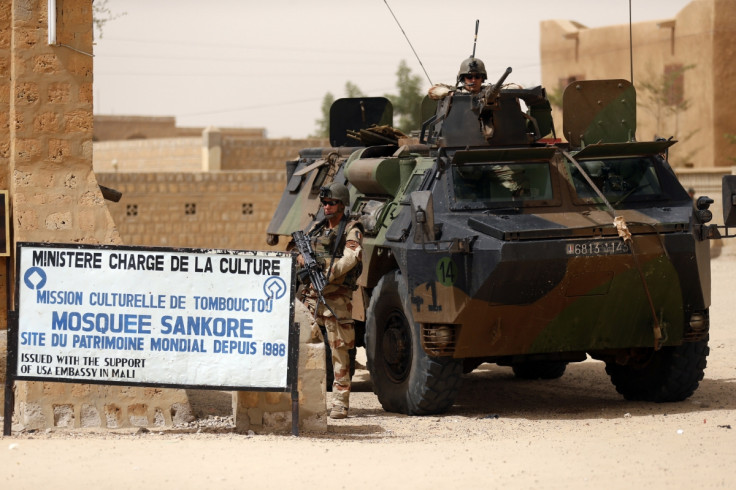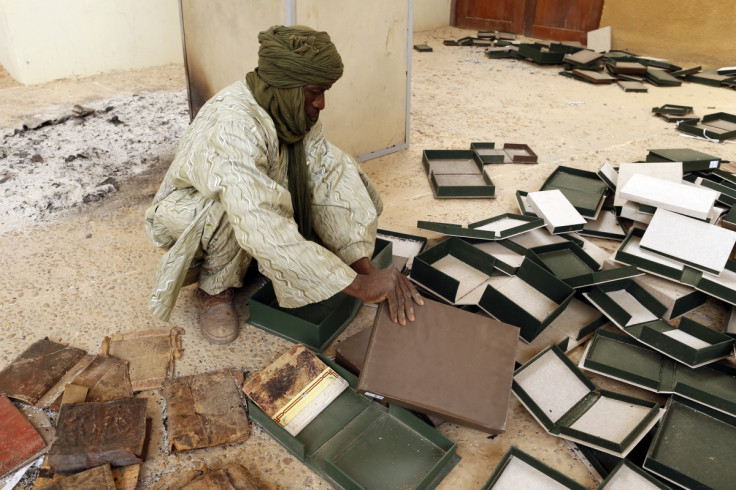Alleged Islamic extremist sent to the Hague for 'acts of cultural destruction' in Timbuktu

An alleged Islamic extremist has been sent to The Hague to stand trial for being involved with the destruction of religious buildings in Timbuktu in Mali in 2012. Ahmad Al Mahdi Al Faqi, also known as Abu Tourab, is the first suspect in the court's custody charged with the war crime of "deliberately destroying religious or historical monuments".
He was sent to the International Criminal Court (ICC) on 26 September in the first ever war-crimes prosecution in the international court for acts of cultural destruction. The prosecution may set a precedent for arrests of Islamic State (IS) jihadists after their destruction of Palmyra and the Assyrian site of Nimrud.
"The people of Mali deserve justice for the attacks against their cities, their beliefs and their communities," said ICC prosecutor, Fatou Bensouda, in a statement. "Let there be no mistake: the charges we have brought against Ahmad al-Faqi al-Mahdi involve most serious crimes."
"They are about the destruction of irreplaceable historic monuments, and they are about a callous assault on the dignity and identity of entire populations and their religious and historical roots. It is rightly said that 'cultural heritage is the mirror of humanity'. Such attacks affect humanity as a whole. We must stand up to the destruction and defacing of our common heritage."

The ICC steps in when countries are unable or unwilling to prosecute crimes committed on their territory. Mali's government asked the court to investigate the destruction of 14 of the city's 16 mausoleums and one-room structures that house the tombs of the city's great thinkers when Islamic radicals overran Timbuktu in 2012.
It has been investigating war crimes in Mali since 2013, following a request from the Malian government. The authorities of Mali's neighboring country, Niger, transferred Faqi into the international court's custody on 26 September, the court said. He had apparently fled to Niger at some point after French and Malian troops pushed the Islamists out of Timbuktu in 2013.
Prosecutors opened an investigation in 2013 with Al Faq, born about 100km west of Timbuktu, became the first suspect arrested, according to The Globe and Mail. He is charged with the destruction of 10 historic buildings including mausoleums and a mosque in the city that sits on the southern edge of the Sahara desert, with no date set for his arraignment.
He is alleged to be a member of paramilitary group Ansar Dine, a mainly Tuareg militia, with close links to Al-Qaeda in the Islamic Maghreb (AQIM) who condemned the buildings as totems of idolatry. Al Faqi was surrendered to the ICC by the neighbouring nation of Niger and based on an arrest warrant issued a week ago, said Al Arabiya.
Ansar Dine and AQIM controlled Timbuktu for the majority of 2012 and early 2013, with Al Faqi being accused of being a leader in a so-called Islamic Court that enforced fundamentalist rules.
The entire city of Timbuktu is listed as a World Heritage Site by Unesco. At the peak of its influence in the 15th and 16th centuries, Timbuktu counted 180 schools and universities that received thousands of students from all over the Muslim world. The monuments, museums and mosques have since been restored by the United Nations.
© Copyright IBTimes 2024. All rights reserved.






